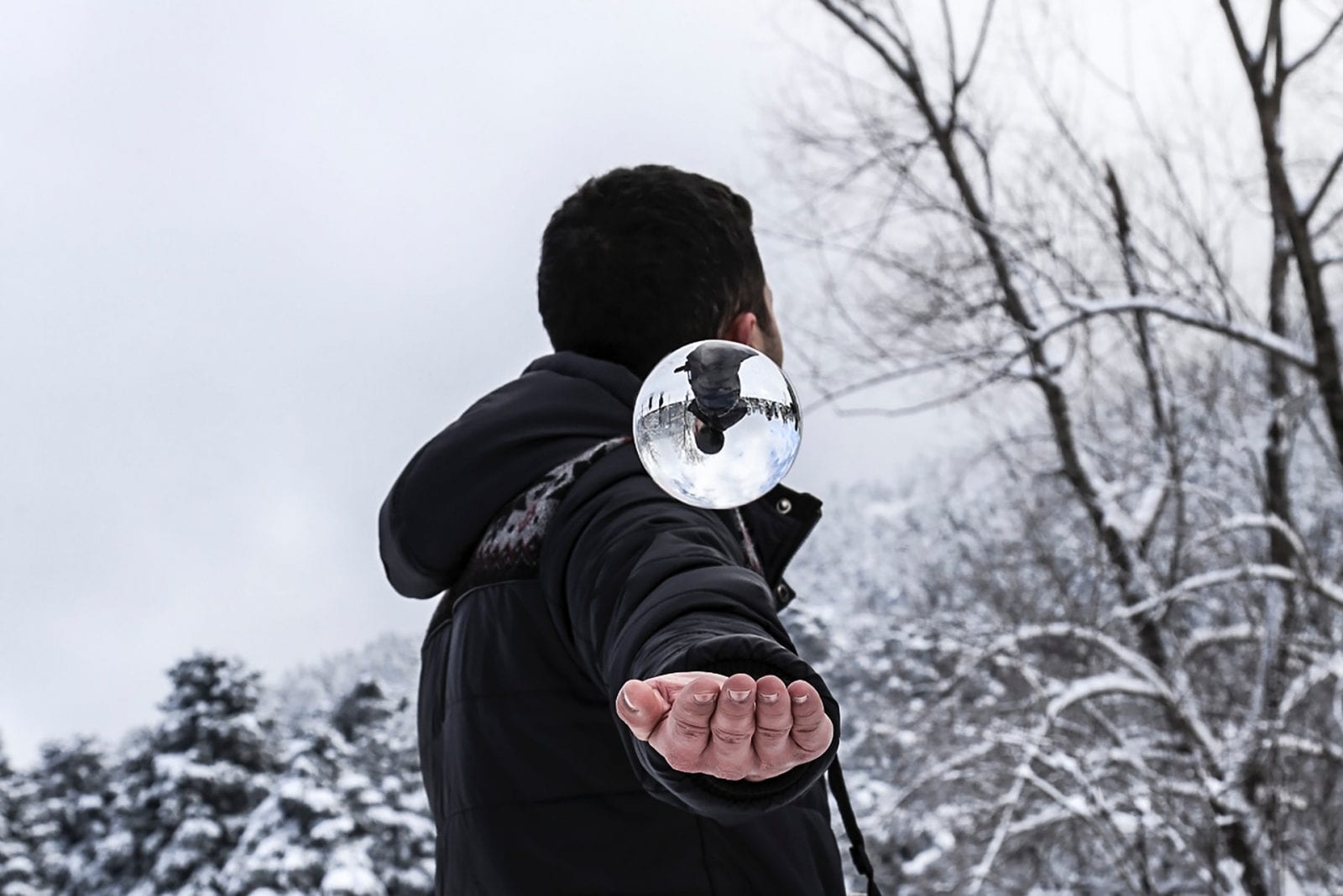
Who doesn’t love a bit of magic? Especially when it exploits human visual, auditory and sensory perceptions to make your mind believe in some supernatural power. Well, if that sounds intriguing to you, here’s presenting you the new gamer of the magic world: The mentalist!
No, this is not about Simon Baker in the American drama series. It’s not just fiction, it’s reality. You will fathom as you walk you through this think-piece. But first let me answer the most awaited question: What is a mentalist?
What is a Mentalist?
SUMMARY
Mentalists are performing artists or ‘psychic’ entertainers who possess highly developed mental or perceptive skills. They perform intuitive mind feats that trick the audience into believing in their supernatural powers.
The best answer for ‘what is a mentalist’ in one sentence will be: They are the magicians of the mind!
A good mentalist can boggle your mind in a way that you will take some time to recover from ‘what just happened!’ It appears so real, that people believe mentalists have a ‘sixth’ or seventh sense that is usually not present in common human beings.
Some of the most common mentalism tricks are Hypnosis, clairvoyance, telepathy, divination, precognition, mind control, memory feats, and rapid mathematics. Well, if a person can make you believe he can see future or even mind-read, it’s already some superlative magic!
The eye-to-detail and observational skills of mentalists are unmatched – one of the primary reasons why they grab attention anywhere in the crowd.
What About History of Mentalist?
You might be surprised but the history of mentalism dates back to thousands of years back in the 1500s. The earliest performance in records that are considered to be a start of ‘what is a mentalist’ in real was by Girolamo Scotto in 1572. The audience was spellbound with his sleight-of-hand techniques, so much so, that he was believed to possess supernatural powers.
Apart from that, bits of mentalism has also been observed in works of ancient Greek and in the Old Testament of the Bible. However, in the 19th century. Mentalism was defined by the supernatural powers of spiritualists, mediums, and psychics.
How Do Mentalists Work?
SUMMARY
Just like magicians, mentalists also use various tools like sleights-of-hand, feints, misdirection, and on-stage artistry to woo its audience. It seems-so-unreal combination of theatrical trickery and misdirection stuns the audience every time they get on the stage.
Now that you are tuned-in about what is a mentalist and its bright history, let’s give you a real picture of what does a mentalist actually do:
While some magicians like to keep this a ‘secret power’ and flaunt their divine powers, a few others accept how they have been trying to create an illusion and play mind tricks. Irrespective of how they chose to reveal their magical journey, there’s no denying that mentalists are extraordinary artists.

Mentalists combine magic with human psychology!
Modern entertainers skilfully mix traditional magic tricks with their understanding of human psychology. The result so generated defies logic and casts a charismatic spell on the audience. This is how they can manipulate the audience’s memory and influence their thoughts via the technique of psychological suggestion.
They are maestros of cold reading!
Mentalists are adept with the art non-verbal behaviors and thus all of their mentalism tricks involve techniques of cognitive manipulation. The skillful feats like knowing what someone has written without looking at it, often called pshypering; guessing the number the ‘subject’ is asked to choose randomly and other highly probable predictions are all based on cold reading.
Mentalists wield the power of persuasion.
Whether it is about displaying the unmatchable mind-reading skills or hypnotizing people to do what they want, they know which buttons to push to make you believe in the unbelievable. Apart from the ‘magic’, mentalists are real-time performers who do what they do with a lot of stage artistry. There’s no denying the power of persuasion, but they do it with such accuracy that you start to question the reality.
Long story short, in the world full of skepticism, these master-mesmerizers generate a sense of astonishment!
How Does Mentalist’s Magic Differ from Regular Magic?
While mentalists walk a very close distance with traditional magicians, they differ in various ways –
1. They don’t mix different forms of magic

The cliched techniques of magicians like pulling rabbits from hats are rarely performed by mentalists. They might employ different aspects of other types of mental magic but they don’t combine ‘standard’ magic tricks with mental feats.
2. Mentalist play with reality

Unlike traditional magicians who encourage their audience to forget logic and submerge themselves in the world of magic, mentalists sell reality and belief. Right from displaying photographic memory or being a human calculator, mentalists support all of their maneuvers with proofs or psychic ability.
While the line drawn in the middle is very difficult to identify to the common eye, especially considering the contemporary artists – it’s pretty much there. In fact, the depth is so buried so deep that some mentalists ridicule the concept of comparing mentalists with magicians. They say it’s a completely different artform altogether.
What is the Mentalist Theory?
Now that you have discerned the REAL meaning of ‘what is a mentalist’, most of you must be restless with one question in their minds – But, how do they do it? What is the theory behind it?
Here’s your answer: Misdirection!
While the connotation meaning of this word is simply guiding someone to the wrong place, the implied meaning of this in psychology is deep-seated. Misdirection is the crux of magic and mentalism, that ultimately defines the mentalist theory.
The human brain is an amazing organ, capable of doing amazing things – process a variety of information, uncover messages sent from different sensory organs, perceive the matter received according to its understanding and so much more. However, it is still easy-to-trick and that’s exactly what mentalists do.
They tap into your brain psyche and take you to a place that wasn’t right for you (hence, misdirection). The place is right for these tricksters as now their mind-game will be in full swing.
Mentalist theory only works on the soil of the ‘subject’s’ attention.
Well, that’s the case with all the magic tricks. Your attention determines your perception, for yourself and for the environment. Mentalists creep into your ‘focus’ and ‘misdirect’ your attention away from reality, into the selected information they want you to process.
Mentalists manipulate your conscious thinking and your sight-sense. Since your mind is constantly adapting to the environment, they try to take advantage of your perceptual process.
4 Common Traits of Mentalists
Mentalists are not commoners like you and me, their traits are sometimes so eloquent that they are easily recognizable in the crowd. What are they? Let’s find out!
1. Mentalist are extremely obsessive

Yes, you heard that right! Mentalists are obsessive, in fact, this is the primary reason why they are so PERFECT in what they do. Obsessive tendencies do not let these not-so-human beings sleep peacefully until perfection is achieved. They tend to repeat the action over and over again, so much so that the techniques flow naturally to them.
2. Over-the-top confidence

Every artist irrespective of their craft needs this. It’s all the more important when you want the audience to believe that it is ‘humanly’ not possible. Most of the successful mentalists never show a drop of sweat on their face while in-the-act. They perform magic tricks like it’s their daily job!
3. Advanced memory techniques

Mentalists are known for their exceptional mindfulness. After all, there’s a reason why mentalists are called mental-ists. They remember numbers, images, or even instances in a supernatural way i.e. they can recite a whole book minutes after reading it.
4. Mentalists are human reader

Their keen eye and capability to read one’s body language are one of their most celebrated traits. They can read the so-called ‘unreadable’ with the way they walk, talk or even sleep. They also train themselves in subconscious communication which in turn helps them to uncover a person’s thoughts.
If these traits sound like you, here’s what must be running in your head!
Can I be a Mentalist?
Of Course YES! But, remember mentalism is not just magic, it’s a lot more.
While most of us understand the flimflam behind the curtains, we fail to comprehend the real work of mentalists. To convince the audience about your supernatural power is certainly not going to be a cake-walk and might cost you hours and hours of practice to master one trick.
Apart from that, it requires some more polishing with additional reading like human psychology, cold reading, non-verbal communication or likewise. You will also need to find the reason for your powers. It might be anything – runs-in-the-family, naturally-gifted or passed down from Zeus!
Can Mentalism Be Learned?
This stunning field of art and science is very difficult to master, but certainly not impossible. Novices can start learning the basic tricks of mentalism and gradually follow up. Mind you, it’s going to be a rocky road ahead as it will demand unwavering dedication and strong intent.
None of the successful mentalists were born like that. It took some serious reading and years of practice to reach where they are today. Thus, if you have it in you, there’s nothing you can’t do.
Pick up every book, article or paper that talks about mentalism and keep yourself open for feedbacks. There’s no better teacher than experience and criticism when the subject is ‘study of people’.
Can You Name Some of These Miraculous Mentalist Artists?
Mentalism has seen some really great charmers. Some who made it difficult for the audience to perceive reality and others who explained how everything has science. Out of the distinguished list, these were the top five of all time –
1. Uri Geller
Uri Geller or the ‘spoon’ man is a well-recognized mentalist with an established brand-name in the industry. His technique of spoon bending with mind power is celebrated amidst the audience. One of the most intimidating facts about Uri is that he amidst to having supernatural powers that he has achieved by virtue of willpower and raw brain strength.
2. Max Maven
Max maven practices mind-reading in the audience full of strangers and guess what, most of his predictions are damn right! Considering his innate talent, he has been awarded several honors through the years – Tenkai Prize (1988), the highest magical award in Japanese culture; Best Mentalist (2000) and some more from Society of American Magicians and International Brotherhood of Magicians.
3. Bob Cassidy
Apart from being one of the most celebrated artists, Bob Cassidy was an acclaimed author of 37 books on ‘how to become a Mentalist’. He was also one of the founder members of Psychic Entertainer’s Association which is the most notable mentalist international professional society.
4. Theo Annemann
Born in 1907, this great being left the world in 1942. Theo’s own invention bullet-catch illusion created a stir in the world of mentalism. He started out as a magician and gradually went up to being a mentalist. In fact, his refined standard routine tricks ar6e still employed by many mentalists around the globe.
5. Derren Brown
The ‘Tricks of the Mind’ star Derren Brown is one of the bests currently. His tricks like convincing someone that he is inside the video game and an attempt to trick the audience into believing that they are trapped onto their seats bewilders the spectators. He accredits all his powers to human psychology, misdirection, and showmanship.
How to Become a Mentalist
For all the aspiring mentalists, you need to first stand the groundwork. However, mentalists who have honed the tricks, here are some tips to help you master your act:
1. Be more HUMAN

You might be on your way to becoming the greatest mentalist the world has ever seen, but you can never be not-human. In fact, if you behave like it, the audience is less likely to believe you. So, while performing your acts be friendly and ease out your subjects with a delicate conversation. You can kick-start with a friendly compliment; it immediately relaxes the mind which will help you do your magic more vividly.
2. Failing isn’t a crime

As mentioned in the first point, you are NOT GOD, which means you are allowed to fail. The layering of so many techniques all-at-once might fizzle you sometimes. But if you keep up with the reading, the other times you will succeed which will accentuate the audience’s belief. Remember, how mentalists always wish to sell ‘real’.
3. Familiar subjects make it harder

If you think as a mentalist, mind-read of a known subject is going to be easy. Here’s breaking the myth: It’s not! In fact, it gets tougher. That’s major because you need to employ more advanced skills to wow them and break the wall of defense that they might create unconsciously considering your superpowers.
4. Don’t rehearse with family

Your family knows you, and there are high chances that most of your tricks are either discussed or seen. Even if it’s your first time, your family knows you are capable of doing such a wonder, thus it will be very difficult to bamboozle them into illusion. You can, of course, talk to other successful mentalists, gauge some master tips but performance-wise, you need to look beyond the family.
Closing thoughts!
For all the people who are still skeptical about what is a mentalist, here’s your rescue: Get up close and attempt to spot the trick. If you can, you are a winner and if you cannot… well, well!
Surabhi has a deep passion for words. She puts her heart and mind into whatever she pursues and craves for creative ventures. She has always been keen on creating original content that can make a difference. In her experience as a content writer, she has had the opportunity to work on several fields with Psychology being her favorite. Surabhi says, words have the power to transform the world, better than a sword. So she hopes to contribute her bit to this revolution. At TheMindFool, she feels lucky to have the opportunity to share content capable of bringing about a change in the lives of the readers.
